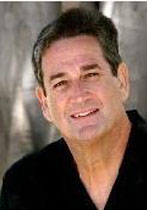By Rabbi Ben Kamin

SAN DIEGO — In my many intervals of teaching—and, more importantly—learning about the life and work of Dr. Martin Luther King, I’ve come to appreciate the real, flawed, and poignant elements of the man. The great preacher, erstwhile “moral leader of our nation,” was in fact an endlessly weary, often frightened, sometimes uproarious individual who nonetheless lived a short, unhappy life with the outcome he expected.
Martin King had a friend named Stanley Levison, a white, Jewish attorney-entrepreneur, native of Far Rockaway, Queens, who joined forces with King and many others in the throes of the history-changing Montgomery Bus Boycott of 1955-56. [The US Supreme Court declared the transportation segregation unconstitutional after a very difficult 11-month campaign, involving a lot of walking and car pools and Klan violence, on the part of thousands of anonymous black citizens of Montgomery].
Stanley Levison died in 1979 and, for some reason, or a set of reasons that I am examining, his pivotal though non-clamorous role in funding, advising, managing, and even doing ghost-writing for King and the Southern Christian Leadership Conference, remain largely unheralded. After President Kennedy personally admonished MLK to “get rid of Levison” (due to FBI-driven claims of Levison’s alleged communist sympathies), MLK used his close comrade and barrister Clarence B. Jones as a furtive conduit to “our friend.”
Sadly, even those “secret” communications were wiretapped and/or monitored by the FBI. (See the current motion picture, J. Edgar).
My central work on a future book about Stanley Levison is primarily built around an ongoing series of interviews, in person, by phone, and in writing with Clarence Jones. Jones, who is a visiting professor at Stanford with close ties to the Martin Luther Research and Education Institute, was the personal attorney to Martin Luther King, Jr. and an unparalleled witness to, and sage of, the King chronicles.
Jones was also the individual who smuggled in scraps of paper to King while the preacher was jailed in Birmingham, Alabama in 1963. This enabled King to covertly write the famed Letter from the Birmingham City Jail, which earned King the 1964 Nobel Peace Prize.
No one else knew Stanley Levison as well as Jones nor laments Levison’s absence from the historical record so vehemently. These two men, an African American scholar and a white businessman who genuinely despised racism and separatism, worked together “24/7” for years (Jones’s phrase), and kept the tapestry of King’s intellectual output flowing and historic.
On January 26, 2012, Clarence B. Jones will receive the John Thompson Legacy of a Dream Award from Georgetown University at the John F. Kennedy Center in Washington. Previous awardees have included Colin Powell and Rev. Dr. Joseph E. Lowery. Jones told me: “It is my intention to dedicate the spirit of this tribute to Stanley Levison, whose work on behalf of the movement has been egregiously unrecognized and strangely ignored. Without Stanley, Martin Luther King, Jr. would have never succeeded.”
*
Rabbi Kamin is a freelance writer based in San Diego. He may be contacted at ben.kamin@sdjewishworld.com